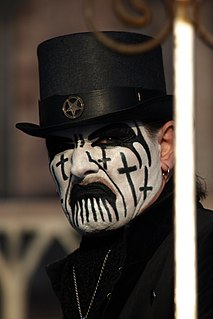Цитата Марка Лейбовича
Есть что-то под названием «Вашингтонское чтение», что является привычкой многих местных жителей заходить в книжный магазин, брать книгу с полки, рыться в указателе, чтобы увидеть, есть ли они там.
Связанные цитаты
Если бы вы были средневековым ученым, читающим книгу, вы знали бы, что существует разумная вероятность того, что вы никогда больше не увидите этот конкретный текст, и поэтому большое внимание уделялось запоминанию прочитанного. Вы не могли просто взять книгу с полки, чтобы свериться с ней в поисках цитаты или идеи.
Корлисс задавался вопросом, что происходит с книгой, которая лежит непрочитанной на полке в библиотеке в течение тридцати лет. Может ли книга по праву называться книгой, если ее никогда не читают? Если дерево падает в лесу и превращается в бумагу для книги, которую никто не читает, но нет никого, кто мог бы ее прочитать, издает ли это звук?
Текущая книга часто пользуется огромной популярностью, в то время как книга эпохи, которая выходит вместе с прессой, остается незамеченной; но великая книга мстит. Он живет, видя, как его современник выдвигает полку за полкой, пока не найдет свое последнее пристанище на чердаке или в аукционном зале.
Это одна из многих особенностей книжного магазина, который я обожаю. Я могу зайти в магазин и сказать кому-нибудь: «Я рад, что вы читаете эту книгу», или «Я рад, что вы приобрели эту книгу», или «Не берите эту книгу. Я прочитал эту книгу и ненавидел эту книгу. Давай вместо этого купим тебе эту книгу».
Я пытался. Я полз. Я приходил в себя. Я пытался каким-то образом выйти за пределы — какое слово я ищу? - метафорический язык в живописи, и создать что-то более индексальное. Под этим я подразумеваю, что когда вы идете в библиотеку, там есть каталожная карточка, которая относится к книге, актуальной и реальной в этом мире. Так что этот индекс относится к чему-то реальному.
Однажды я нашел эту книгу в магазине подержанных книг с надписью «Сатанинская Библия» на обложке, и я подумал, что, может быть, мне следует прочитать ее и посмотреть, что это такое. Я думал, что это похоже на религию, но потом я прочитал книгу, и то, что было в ней, было чистой жизненной философией — и это была жизненная философия, описывающая то, что я чувствовал в тот момент.
Поскольку у него не было времени читать каждую новую книгу в своей области, великий польский антрополог Бронислав Малиновский использовал простой и эффективный метод определения того, какие из них заслуживают его внимания: получив новую книгу, он сразу же проверял индекс, чтобы убедиться, его имя упоминалось и как часто. Чем больше «Малиновского», тем убедительнее книга. Никакого «Малиновского», и он вообще сомневался, что предметом книги была антропология.
Каждый из нас может придумать книгу... которую, мы надеемся, никто из наших детей или других детей не взял с полки. Но если я имею право убрать с полки эту книгу — эту работу, которую я ненавижу, — то и вы имеете точно такое же право, как и все остальные. И тогда у нас не осталось ни одной книги на полке ни для кого из нас.

































